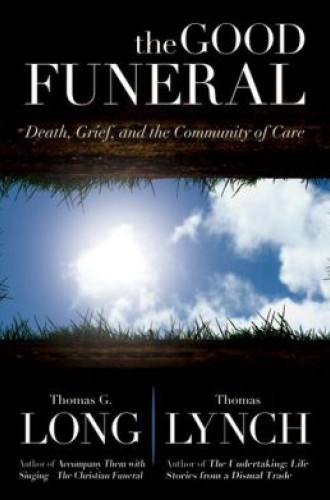The body in question
With The Good Funeral, the two best writers on American ways of death, burial and grieving have given us our best book on funerals. Most of us who are familiar with Thomas Lynch met him in his poetic, widely acclaimed The Undertaking. Thomas Long’s funeral book, Accompany Them with Singing, is an eloquent, theologically formed plea for the church to recover the theological significance of the Christian funeral. Now the thanatology Toms have combined their considerable writing talent and knowledge. No pastor can be said to be prepared to lead in the essential liturgies of death and dying without having read this book and having shared its truths with the congregation.
In an opening chapter of autobiographical reminiscence, Long shows the major role that the liturgies of burial have played in his vocation. Citing my own testimonial in Resident Aliens, he demonstrates how the church’s funeral practices have radically changed in only a couple of decades—how we have sold out to the whims of the culture and, in the process, exchanged the treasure that the church has to offer grieving people for a mess of cheap psychotherapeutic platitudes served up by a stand-up comedian in a bogus “Celebration of Life” where the body of the deceased seems to be an embarrassment. Indeed, the body whose death has occasioned the need for burial rituals appears in modern practices to have vaporized so all of us can quickly grab “closure” and “get over it.”
Long’s memory of his uncle Ed’s funeral, in which a simple small-town pastor ministered to grieving family and friends, is one of the many stories with which he bolsters his claim that planning and leading funerals is one of the most important duties of a pastor. From the moment the pastor showed up among the mourners for Uncle Ed, his presence “disclosed the holy hidden in our grief.” “This frail human being, striding across the lawn in his off-the-rack preacher suit, desperately trying to find some words of meaning to speak, brought with him the grace of God, the sudden awareness that we were not merely there to bury a dead relative but to venture out on a sacred pilgrimage.”





